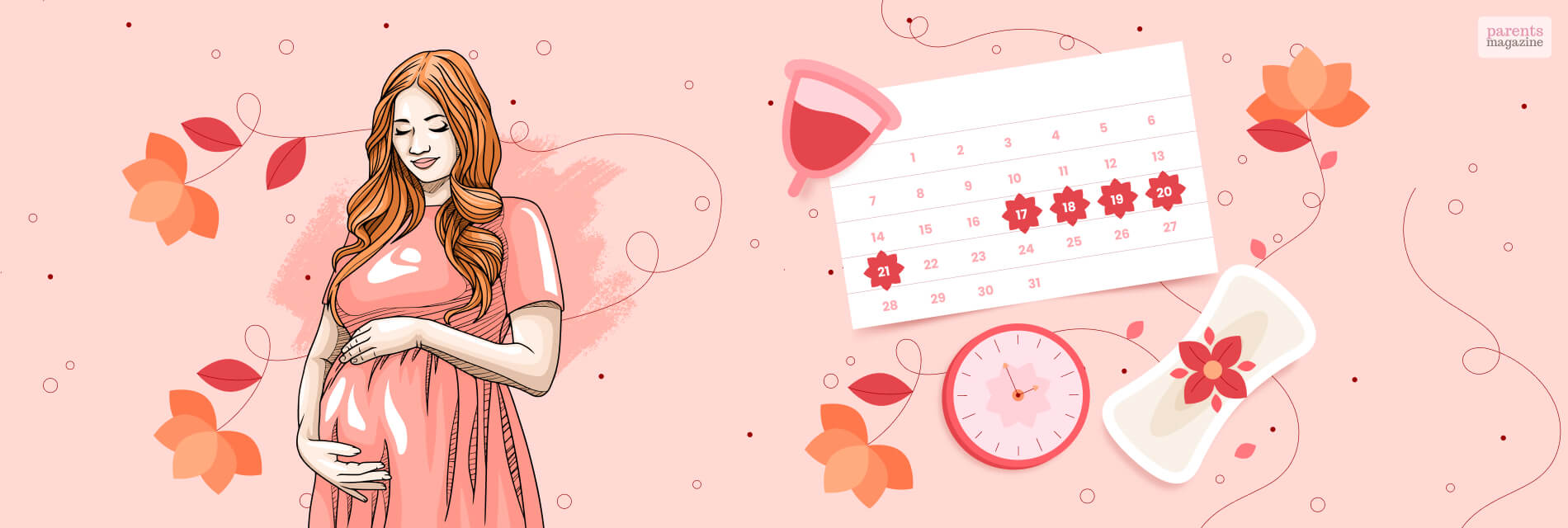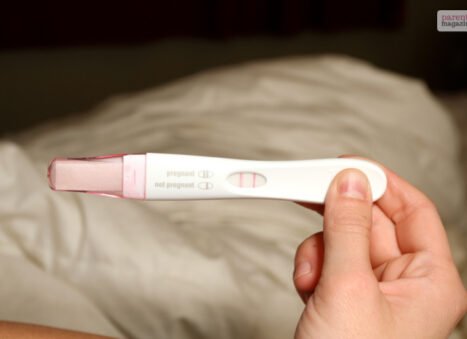
Can You Have Your Period And Be Pregnant? A Guide For The Teens
can you have your period and be pregnant? Here is the simplest answer – NOO.
If these are some early experiences of Nirvana (read: sex), then, theoretically speaking, you cannot get periods if you are pregnant.
However, possibly, you might see some spotting (with dark pink and dark brown colors). You are not pregnant if you are bleeding like in other months. However, it is time to seek medical attention if the bleeding is heavy and you have had a positive pregnancy test.
Understanding Periods And Pregnancy
Teenagers are often concerned about pregnancy and periods when they start becoming sexually active. While periods are common among women within reproductive age, pregnancy is a little different. It does not happen unless or until someone becomes sexually active.
Here is some insight about pregnancy and periods –
Periods

Periods, also known as menstrual cycles, happen to women of reproductive age as a result of hormonal changes in their bodies. Every month, the uterus builds up a lining of blood and tissue in preparation for pregnancy. If pregnancy does not occur, the body sheds the lining, leading to a period. This process helps to regulate the reproductive system and keep it healthy.
Pregnancy

Pregnancy is a condition where women carry an embryo or fetus within her uterus. This state lasts for about 9 months before the fetus grows into a baby. So, can you get your period while pregnant?
There is a basic difference between pregnancy and periods. When a girl is pregnant, she stops having periods. However, this difference is often not too obvious, making girls raise questions such as – can you have your period and be pregnant?
Many women have reported having periods even when they are pregnant. However, there are many internet conspiracies around this topic. Different social media handles, blogs, and even TV shows have discussed this topic.
However, if you are bleeding while you are pregnant (not period-type bleeding), you may still have healthy babies. Many people experience bleeding and spotting during the first trimester of their pregnancy. Bleeding during pregnancy is not related to menstruation. Instead, it can be something else.
It is important to note that periods happen only when you are not pregnant.
Why Can’t You Have Periods While Pregnant?
Spotting during pregnancy is quite common. However, if you experience bleeding during pregnancy, the menstruation is certainly not the reason. Women have a period when the uterine lining sheds by the end of a menstrual cycle.
If an egg goes unfertilized, estrogen and progesterone levels drop, making the body shed the urine lining. Cramping happens due to this shedding and cramping process, which are the characteristics of a woman’s periods.
This process is repeated again and again, and the female body builds up a new uterine lining preparing for pregnancy. So, when a woman is pregnant, it means that the egg has already been fertilized and implanted into the walls of the uterus.
At this point, the pregnancy hormone signals to your body to maintain the uterine lining. Since the uterine lining is not shedding due to the egg being fertilized, there is no chance for you to get periods when pregnant.
Causes Of Bleeding During Pregnancy
Only 15 to 25 percent of people spot when they are pregnant. You might experience bleeding during pregnancy due to several different reasons. Here are some of them –
- implantation bleeding
- Molar pregnancy
- changes in the cervix
- Ectopic pregnancy
- Infection
- Early signs of miscarriage
1. Implantation Bleeding
When the fertilized egg implants into a woman’s uterus around their period, an implantation bleeding occurs. Although implantation bleeding is light or comes with spotting, it is sometimes mistaken as a period.
Unless you have any infection, implantation bleeding should not concern you. Implantation bleeding is the reason for bleeding during the first trimester of pregnancy. There are other reasons as well, such as –
- Infections – During the first trimester, bleeding can happen if you have any kind of infection in the vagina, cervix, or sexually transmitted disease or infection like herpes, gonorrhea, or chlamydia.
- Ectopic Pregnancy – Bleeding during the first trimester can be a sign that you have an ectopic pregnancy. this is the condition when the uterus begins to grow outside the uterus, mostly in the fallopian tube. but the amount of bleeding that happens because of an ectopic pregnancy varies from woman to woman.
- Miscarriage – Most miscarriages happen during the initial twelve weeks of pregnancy. one of the major signs of a miscarriage is vaginal bleeding that happens with uterine cramping. You might even witness blood clots that you often experience during menstruation. Do not delay if you experience these and get yourself checked from your doctor.
- Molar Pregnancy – Molar pregnancy is a condition that happens when a fertilized egg joins with the sperm incorrectly and forms a noncancerous tumor. it might seem like a regular pregnancy in the beginning, but might cause bright red to dark brown vaginal bleeding in the initial twelve weeks of the pregnancy. you might eve experience grape-like cysts passing through your vagina.
While experiencing the above issues, a woman might experience – severe cramps or abdominal pain, back pain, faintness, fever, shoulder pain, fatigue, vaginal discharge, and more. Also, the bleeding, in this case, is much heavier and is not like spots and normal periods.
2. Preterm Labor
Any birth happening before the 37th week of pregnancy, is referred to as preterm labor. During this time, some people experience period-like discharge and a large amount of mucus discharge. If you think that you have a period during the second or the third trimester of your pregnancy, then preterm labor might be what happened.
3. Placenta Previa
When the placenta is implanted very close to the cervix, it is called a placenta previa. The bleeding varies with no other symptoms to accompany it.
4. Uterine Rupture
When the muscles of the uterus tear or separate, a uterine rupture appears. The rupture causes severe and uncontrollable bleeding. Women who go through cesarean delivery usually experience a uterine rupture. These conditions are usually rare and can occur due to old scar lines on the uterus.
5. Placental Abruption
When the placenta detaches from the uterus, women experience heavy bleeding. This symptom also comes with excessive stomach pain and cramping. Women with issues such as high blood pressure can increase their chances of having a placental abruption.
6. Penetrative sex
According to Melissa Esposito, M.D., it is possible to bleed after any kind of vaginal penetration or sexual intercourse. while you are pregnant, your cervix is more sensitive, and thus there is an increased chance of stimulation. So, coming in contact with any kind of sex toy, finger or penis can cause mild to moderate bleeding. this is the reason you often bleed during pregnancy after getting your pelvic examined.
7. Cervical Polyp
Cervical polyps are caused when all tissues grow on the cervix. They are not a cause of concern, and will not harm the mother or the baby I any war, but might cause vaginal bleeding as the number of blood vessels increase in the cervix.
Bottom Line
If you have bleeding during pregnancy, then the reasons can be any of the ones mentioned above. If you, however, experience bleeding during the first trimester, it may come with light cramping, vaginal bleeding, irritability, fatigue, and such. But, if you are asking – can you have your period and be pregnant, the answer is a no.
You must learn to differentiate between the normal process of menstruation and bleeding during pregnancy. Although you may face bleeding during pregnancy, it may not always be due to periods. I hope you have found your answer. But, if you have further queries, you may contact us in the comment section. We will get back to you as soon as possible.
Read Also:
Already have an account?
Sign In
Create your account
User added successfully. Log in








